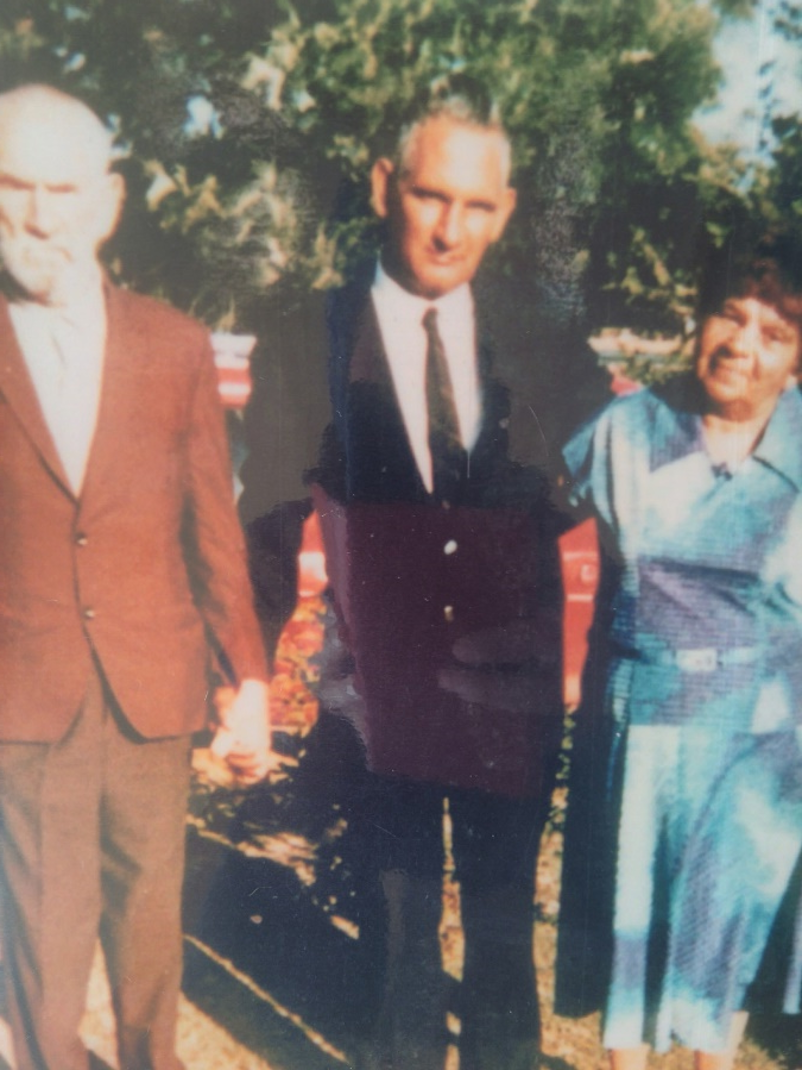
PhD Thesis submitted 2024
PhD Thesis Title
Our Mabel. Our Voice: Through Life Story One Aboriginal Family Writes for Self-Love, Justice and Reconciliation.
PhD Thesis Status
Accepted September 2024.
Award for Excellence
PhD received an Indigenous Higher Degree Research Excellence Award for outstanding doctoral candidature from Monash University Pro-Vice-Chancellor (Indigenous).
Publication of Thesis
The thesis will be under embargo until Jacinta can publish her great-grandmother's life story.
PhD Thesis Abstract
Historically, the colonisation of Australia has been told as a success story with little reflection on how this narrative has influenced Aboriginal families historically and to this day. Jacinta’s research directly challenges this problem.
With care and compassion, in collaboration with her Great Uncle Walter Eatts, her birth father, and family in Western Australia, she is telling her family’s story of reconnection and healing, through relational understandings that time is synchronous (the past lives in our present). Jacinta’s story centres her Great Grandmother Mabel Ita Eatts, née Frederick (1907-1991), a Kitja Jaru woman and a Stolen Generations Survivor, born on Country in Ceremony in Lugangarna/ Palm Springs, near Halls Creek in Western Australia.
Through archival evidence, her Great Uncle’s memoir, family memory, and further research, this thesis will document how Mabel and the man she married survived oppressive, racialised policies in Western Australia and Queensland between 1900 and 1960. This narrative will give agency to Mabel’s life, her strength and resilience and her influence on generations since.
Jacinta advocates for First Nations family standpoints inside of the Academy, Indigenous family access to all the archives that relate to them, and processes of culturally informed intergeneration truth-telling and healing through story.
Background - Western Australia's Secret History
The early to mid 1900's in Australia was a dark period for Aboriginal families. In Western Australia for instance, under the Aborigines Act 1905, The Chief Protector of Aborigines became the legal Guardian of all Aboriginal children in Western Australia till the age of 16 years, overriding all legal guardianship of their mothers. Aboriginal families were under the control and surveillance of the Department of Aborigines.
Aboriginal people were required to seek permission from local and State protectors, to do many things. During this time, 1000's of letters were written to the Aborigines Department by Aboriginal parents. All these letters were written with the hope for something better.
The Western Australian Government filed these letters away
and many have survived and can be found in the State Archives of Western Australia.
Jacinta's
Great Grand Father Jack Albert Eatts and her Great Grand Mother Mabel Ita Frederick were among those who wrote to the Protector of Aborigines.
Jacinta's family now have copies of the letters written by Jack and Mabel and the replies they received from the Department between 1929 - 1939.
These letters form the basis of this PhD.
Jacinta's
thesis is dedicated to her Great Grandmother Mabel Ita Frederick. As the 2018 NAIDOC week theme stated,
“Because of her we can”. Through the letters she and her husband Jack Albert Eatts wrote in the 1930’s to the
Protector of Aborigines, her family have learnt of their fierce efforts to keep the family together in an era where the Australian government was actively separating and controlling Indigenous Australian families.
The
Aborigines Act of 1905
created the position of Chief Protector of Aborigines. The Chief Protector's role in the removal of Aboriginal children and the administration of control over the lives of Aboriginal families is central to my study. The letters exchanged between Jacinta's family and the Protector of Aborigines during the 1930’s provides the backbone for exploration and discussion in this thesis.